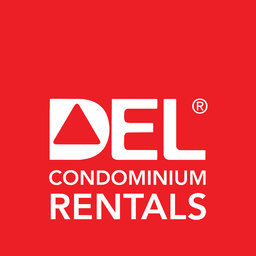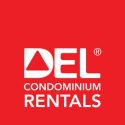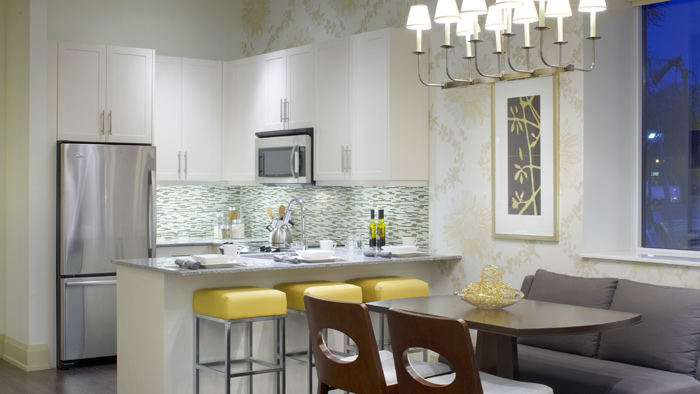29 May Five Ways to Maintain Your Investment Condo’s Value
So, life is good: You’ve bought a nice investment condo in a great Toronto neighbourhood, lined up some conscientious, friendly tenants to live there, signed the lease, handed over the keys, and everything is going according to plan.
But since you’re in this for the long haul, how do you make sure everything keeps going to plan?
1) Make sure your tenants are on your team
One of the easiest ways to make sure your investment condo stays in great shape is to enlist your tenants onto Team Great Property. They want a lovely, well-maintained place to live, and you want the value of your property to grow, so there’s a lot of ground to work together and keep that unit looking great.
Simple ways to make sure your tenants are looking out for the space itself are to foster a landlord-tenant relationship that thrives on honesty, cooperation, and trust. This means encouraging your tenants to report issues as soon as they happen, acting fast on both necessary and proactive maintenance, and doing small but vital things like leaving spare air conditioning filters or paint in the right colours in the utility closet, so your tenants can touch up any dings or scratches as they occur.
People like a chance to take pride in their home, however temporary it might be. Let your tenants do that—and choose tenants whose eyes light up when you say you want a collaborative relationship—and half your property maintenance issues will evaporate right out the gate.
2) Inspect the property regularly
Make it a ritual when you set an appointment to renew your tenant’s lease or pick up any spare mail that might go to your investment property’s address: take a walk around the unit, check out its state of good repair, and ask your tenant if there are any issues you should look into—no matter how small they might seem.
Property maintenance is one of those areas where putting in a little effort more often will frequently ensure you don’t find yourself dropping everything to bail yourself out of a crisis situation. Catch small problems now, prevent them from becoming big problems, and you’ll make sure your property stays in marketable, valuable shape.
More to the point, if you develop relationships with reliable contractors—plumbers, carpenters, and so on—before water comes gushing across the floor, you’ll spare yourself the stress of comparing quotes on short timelines and be able to just get ‘er done.
3) Stay in touch with your condo board
No, you don’t live there, but the decisions your condo board makes will affect the value of your investment property. Are they adding amenities, or have amenities been delayed? Are they making decisions which will raise your condo fees—and cut into the value of the building, as well as your margins?
As an owner, you have a vote on your investment property’s condo board and a seat at their AGM, and it’s in your best interests to use both of those actively. Knowing the shape of the next year for the entire building will help you make prudent, fiscally realistic plans for your investment property—and know what sorts of tenants you can and can’t attract.
4) Charge smart rents and take out smart mortgages
The smartest rent isn’t always “As high as you can get away with,” just like it’s not always “Low enough to get that tenant you think is a great fit”. A good—and dynamic—knowledge of market rates in your area, as well as who tends to rent in that neighbourhood, is a valuable thing when it comes to setting rent for your unit.
It’s also valuable to plan your requested rent in tandem with your monthly condo fees and the mortgage on that unit. Make sure your rent covers your expenses, with a buffer set aside to cover any repairs which might come up and, more importantly, your taxes. Property rental income is declarable income, and saving up for taxes will spare you a nasty April surprise.
If you’re uncertain about the area, or if the building is new, a variable-rate mortgage can be a godsend for a new landlord: If, two years in, your math just didn’t work out, you can adjust the mortgage rate to accommodate the rental income you’ve committed to for the length of that lease and make sure that investment property isn’t a hit to your personal pocketbook.
5) Know your goals
The most important thing about investment property is that it’s not an end in itself; it’s a means to achieve professional and financial goals. Know, from the outset, what your goals are for this property: Are you looking to rent it for the long term, or just to cover the mortgage while the property value matures for a resale? Are you holding onto that spot for a family member who’s retiring and downsizing, or graduating and establishing themselves in the city?
If you’re looking to establish stable long-term rental relationships with tenants, then it’s practical to offer two-year leases as a stability incentive. But if you’re looking to sell that unit when the market is ripe, one-year leases, which you can evaluate year by year, are the better move. If you’ve got that unit in reserve for a family member, a higher mortgage rate which accumulates equity faster is more beneficial than if this is an income property only.
Knowing what you want out of the investment condo experience—and reevaluating that actively as your life circumstances, goals, and needs change—is the key factor to making sure you make the right decisions to maintain the value you need for the goal you have in mind, and that everything keeps going according to plan.



Sorry, the comment form is closed at this time.